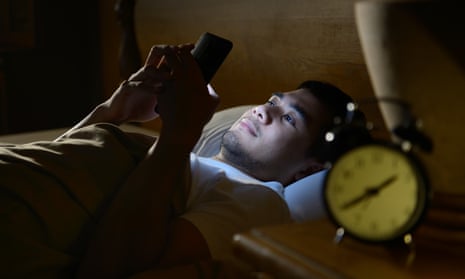You’re lying in bed. The lights are off. You’ve turned your pillow over three times, tried every sleeping position, and even counted imaginary sheep. Still — no sleep.
Your body feels tired. Your eyes are heavy. But your brain? It’s wide awake.
Most people blame stress — exams, job pressure, bills, breakups. But what if that’s not the main reason you can’t sleep at night?
What if the real reason is something deeper, something nobody talks about?
Let’s break it down — in simple words, with real-life logic — and figure out what’s really keeping you awake.
1. Your Mind Is Addicted to Stimulation
Think about your day.
From the moment you wake up to the moment you lie down, your brain is being constantly entertained:
- Scrolling through Instagram Reels
- Watching YouTube or Netflix
- Listening to music or podcasts
- Chatting on WhatsApp
- Jumping between apps, notifications, and tabs
Your mind is being trained to never pause. So when you finally lie down in silence, your brain doesn’t know how to “turn off.” It’s still in “scroll” mode.
You’ve trained it to stay hyperactive — not relaxed.
Sleep requires the opposite: peace, stillness, and boredom. But our modern lives don’t give the brain any practice in slowing down.
2. You Never Let Yourself Be Bored
Here’s something strange: being bored is actually healthy for sleep.
When you’re bored, your brain gets tired. That’s why people fall asleep in slow meetings or while reading textbooks at night. Boredom is a natural signal that says, “Hey, it’s time to rest.”
But in today’s world, boredom is treated like an enemy.
You’re in a line for 2 minutes? Open your phone.
Waiting for someone? Scroll Instagram.
Can’t fall asleep in 5 minutes? Start a YouTube video.
You’re never truly “doing nothing.” And that’s the problem.
You need mental emptiness before sleep. But you’ve filled your head with too much noise.
3. Your Body Clock Is Broken
Your body has something called a circadian rhythm — a natural clock inside your brain that tells you when to sleep and when to wake up.
This clock depends heavily on light.
In the past, people woke up with sunlight and slept when it got dark. But today? We’re exposed to blue light from phones, TVs, and laptops even at 2 AM.
This light confuses your body clock. Your brain thinks it’s still daytime, even though it’s midnight.
So even if you want to sleep, your brain thinks, “Nah, it’s still time to scroll.”
4. You Overthink Everything at Night
At night, there are no distractions. No background noise. No conversations. Just silence.
That’s when your brain starts its private drama:
- “Did I say the wrong thing today?”
- “What if I fail that exam?”
- “Why didn’t they reply to my message?”
- “What am I doing with my life?”
Even the tiniest thought can grow into a full-blown mental movie. And once your thoughts take over, sleep goes out the window.
It’s not always “stress” — sometimes it’s just a habit of overthinking when things get quiet.
5. You Sleep With Your Phone
Let’s be honest — most of us sleep with our phones right next to us.
Even worse? We check them just before sleeping. One reel turns into ten. One message turns into an hour-long chat.
And then you say, “I don’t know why I can’t sleep.”
Your brain doesn’t get the time to cool down. You’ve filled it with information, light, noise, and drama — right before expecting it to go quiet and fall asleep.
It’s like eating 5 plates of biryani and expecting to feel light. That’s not how it works.
6. You Sleep, But You Don’t Rest
Some people do fall asleep — but still wake up tired.
That’s because they’re not getting deep sleep. Their sleep is disturbed, light, and unrefreshing.
Why?
- Eating heavy meals late
- Drinking coffee or tea in the evening
- Scrolling phone during midnight bathroom breaks
- Sleeping at irregular times every night
Your brain and body need a routine to enter deep sleep. Without that routine, your sleep is just a nap.
7. You’ve Forgotten How to Relax
Sounds silly, but it’s true. Most of us have no idea how to relax anymore.
Relaxing doesn’t mean lying down. It means truly unwinding — mentally and physically.
Your muscles should loosen. Your breath should slow down. Your thoughts should become gentle.
But in today’s world, even our relaxation is intense:
- Loud music
- Action movies
- High-energy gaming
- Fast-paced content
Relaxation is not about distraction — it’s about slowing down. And that’s a forgotten skill.
8. You’re Always “Available”
Think about this: Your ancestors didn’t have phones. Once the sun went down, they were done for the day.
But you? You’re always available:
- “What if someone texts me?”
- “What if there’s a new notification?”
- “Let me check if anyone saw my story.”
Your brain never gets to “log off.” Even if you’re in bed, you’re mentally online.
Sleep requires disconnection. But you’re always connected.
Final Thoughts: So, What Can You Do?
Here’s the good news: You can fix this. It’s not permanent.
Start small:
✅ Keep your phone away from your bed
✅ Don’t use screens 1 hour before sleeping
✅ Make a sleep routine — same time every day
✅ Try deep breathing or meditation
✅ Accept silence — don’t fear it
✅ Let your brain get bored sometimes
Your mind is not broken. It just needs rest — real rest. Not Netflix. Not memes. Not doom-scrolling.
Once you give it the peace it’s begging for, sleep will find you again. Not as a struggle… but as something natural.
So next time you can’t sleep, ask yourself:
“Am I really tired… or just overstimulated?”
Your brain isn’t your enemy. It just needs silence.
Sleep well. 🌙✨


